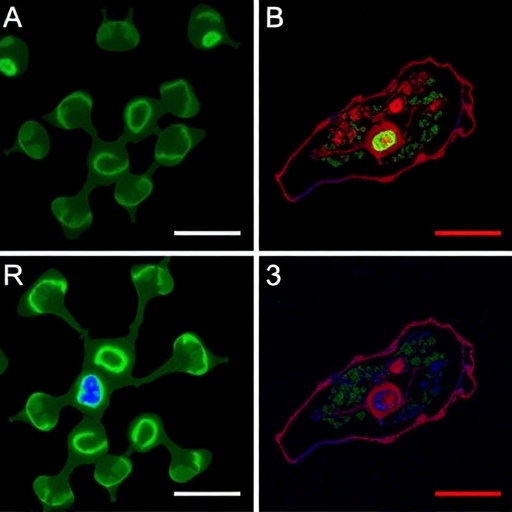In a groundbreaking study spearheaded by researchers at King’s College London and Maastricht University, new evidence challenges conventional perceptions about the health implications of certain industrially processed hard fats. These fats, which are ubiquitous in everyday consumables such as bakery products, margarines, and spreads, have long been viewed with suspicion due to their saturated fat content and processing methods. However, the latest clinical trial published in the esteemed American Journal of Clinical Nutrition reveals that these fats, specifically interesterified fats rich in palmitic acid or stearic acid, may not pose the cardiovascular risks once feared when consumed in realistic dietary amounts.
Interesterification is a sophisticated fat modification process used by the food industry to alter the physical characteristics of fats without creating harmful trans fatty acids. This process rearranges the fatty acids within triglycerides, allowing for the formulation of hard fats that can replace traditionally used trans fats and certain animal fats known to elevate cardiovascular disease risk. The study particularly focused on two varieties of interesterified (IE) fats: one abundant in palmitic acid, primarily derived from palm oil, and the other rich in stearic acid sourced from diverse plant fats.
The clinical trial enrolled 47 healthy adult volunteers, carefully designed as a double-blind randomized crossover study. This methodological approach ensured that neither the participants nor the researchers were aware of which fat type was being consumed during each intervention period, thus minimizing bias. Each participant followed two separate six-week dietary phases in which muffins and spreads containing approximately 10% of their daily caloric intake from either palmitic acid-rich or stearic acid-rich IE fats were incorporated into their meals.
Comprehensive cardiometabolic assessments were performed, encompassing an array of biomarkers critical to cardiovascular health. These markers included lipid profiles such as total cholesterol, HDL cholesterol, and triglycerides, insulin sensitivity indices, hepatic fat content, inflammatory cytokines, and vascular endothelial function. Such a robust panel allowed for a thorough evaluation of potential metabolic perturbations attributable to the different fat types.
Remarkably, the study revealed no statistically significant differences in the lipid parameters between the two dietary fat interventions. Of paramount importance was the finding that the ratio of total cholesterol to HDL cholesterol, a prominent predictor of cardiovascular risk, remained unaltered regardless of whether participants consumed IE fats rich in palmitic acid or stearic acid. Similarly, triglyceride levels, a key factor linked to atherosclerosis, showed no adverse changes.
Equally notable was the absence of negative effects on insulin resistance, a metabolic condition often intertwined with heart disease risk. The researchers also observed no increase in systemic inflammation markers, which are commonly elevated in response to harmful dietary fats and associated with endothelial dysfunction. Liver fat accumulation, a sentinel for metabolic syndrome and cardiovascular disease, remained stable throughout the intervention periods.
Professor Sarah Berry, a leading nutritional scientist at King’s College London and senior author of the study, underscored the broader implications of these findings. She emphasized that not all food processing is inherently detrimental to human health. The interesterification process, she explained, can yield fats that mitigate the known cardiovascular hazards associated with trans fatty acids while also enabling food manufacturers to decrease the saturated fat content in their products.
The evidence brought forth by this study holds significant weight in the context of public health and food industry practices. Given the widespread use of palmitic and stearic acid-rich interesterified fats in everyday food items, this research provides reassurance against the backdrop of often sensationalized narratives surrounding processed foods. It highlights how technological advancements in fat processing can produce safer alternatives that do not compromise heart health within consumption limits typical for most individuals.
Professor Wendy Hall, the lead author, echoed this sentiment by highlighting the importance of contextualizing these fats within real-world dietary patterns. She noted that previous concerns over saturated fats have sometimes overshadowed nuanced distinctions in lipid chemistry and metabolism. Their study contributes valuable insights that can inform dietary guidelines, regulatory policies, and consumer choices, particularly as processed food products continue to dominate global food systems.
It is important to note that while the six-week duration of the trial is sufficient to detect clinically relevant shifts in lipid profiles and other cardiovascular disease markers, the long-term effects of chronic consumption of interesterified fats remain to be elucidated. The researchers advocate for extended studies to assess the cumulative impact over months or years to ensure comprehensive safety evaluations.
This research initiative was a collaborative effort between two leading institutions, King’s College London and Maastricht University, with the financial backing of the Malaysian Palm Oil Board. Such partnerships underscore the critical role of cross-institutional and cross-sector collaborations in advancing nutrition science and public health.
In an era where food processing is frequently demonized, this study offers a counter-narrative based on rigorous scientific inquiry. It paves the way for a more sophisticated understanding of how modified fats can coexist with health-conscious dietary frameworks. Ultimately, these findings encourage both manufacturers and consumers to reconsider the complexities of dietary fats beyond simplistic classifications.
As the global community continues to grapple with the dual challenges of nutrition-related chronic diseases and sustainable food production, innovations like interesterification provide promising avenues for creating healthier, more acceptable fat options in the food supply. This study’s comprehensive and meticulous approach sets new standards for evaluating cardiovascular implications, reaffirming that not all processed fats are created equal.
Subject of Research: Health effects of industrially processed interesterified fats rich in palmitic acid and stearic acid on cardiovascular risk factors.
Article Title: Effects of Palmitic and Stearic Acid-Rich Interesterified Fats on Cardiometabolic Health in Healthy Adults.
News Publication Date: Not explicitly stated in the provided content.
Web References:
https://www.sciencedirect.com/science/article/pii/S0002916525005428?via%3Dihub
References:
American Journal of Clinical Nutrition (journal of publication)
Keywords: Heart disease, Nutrition, Cardiovascular disorders, Saturated fats, Interesterified fats, Palm oil, Palmitic acid, Stearic acid, Lipid profiles, Insulin resistance, Food processing.
Tags: American Journal of Clinical Nutrition findingscardiovascular disease and dietary fatsclinical trial on dietary fatsfood industry fat modificationinteresterified fats and heart healthKing’s College London nutrition studymargarine and spreads nutritionmisconceptions about margarine safetypalmitic acid health effectsprocessed fats health impactsaturated fats and cardiovascular riskstearic acid dietary sources





